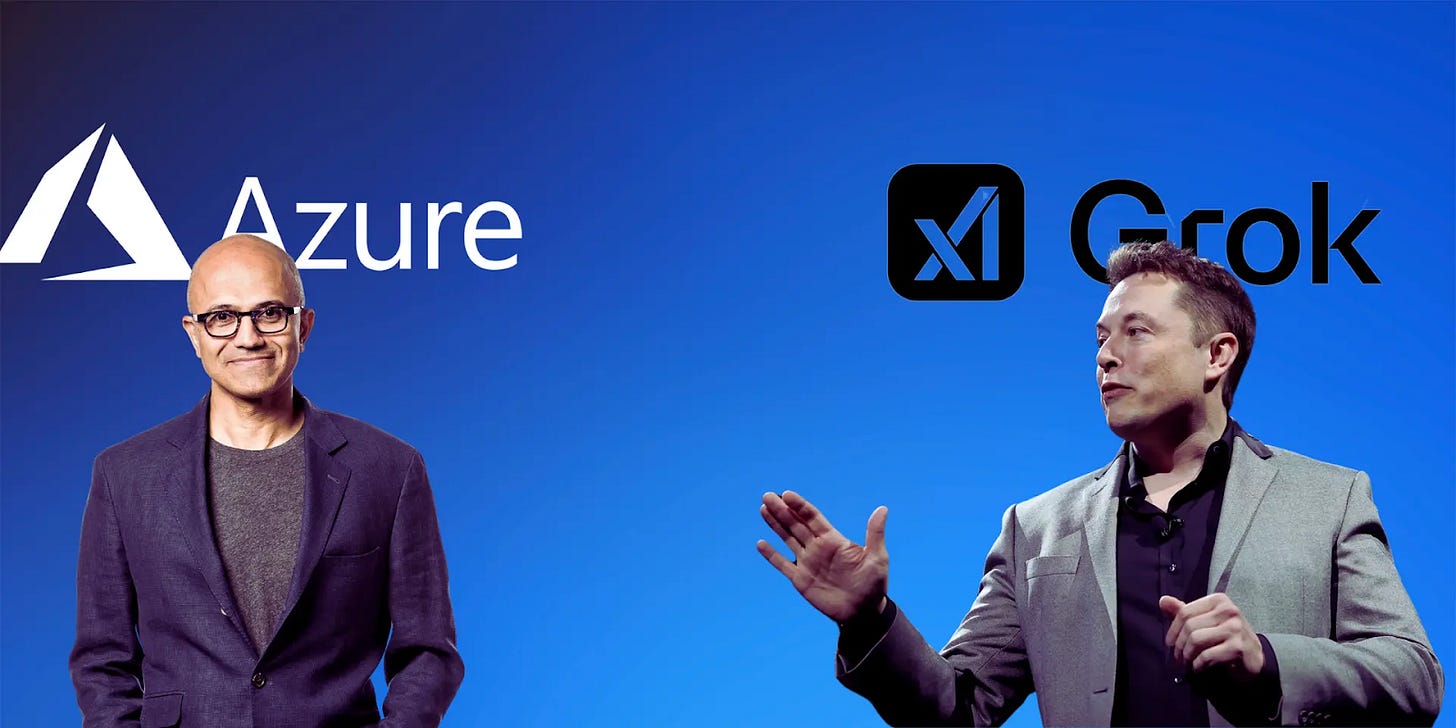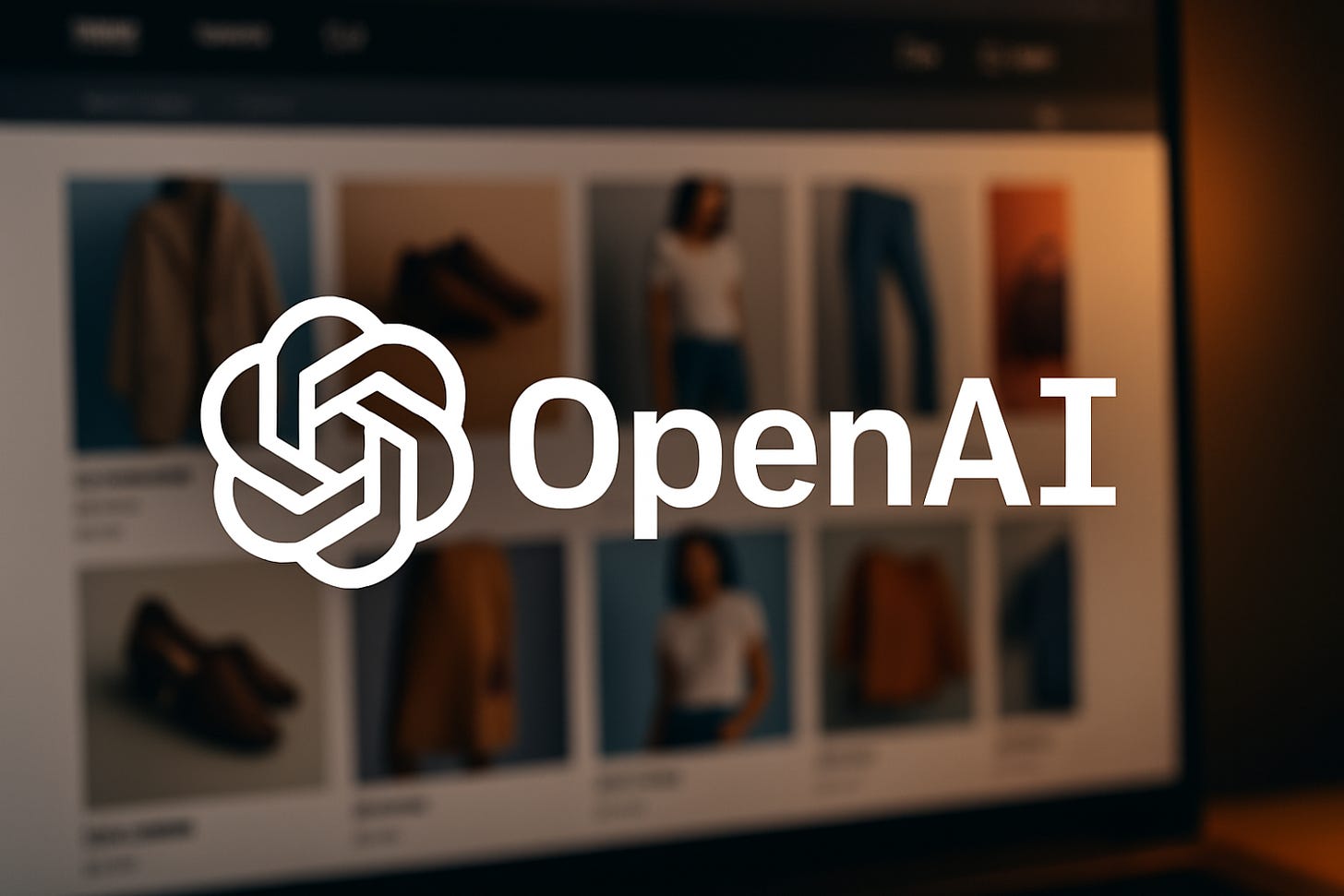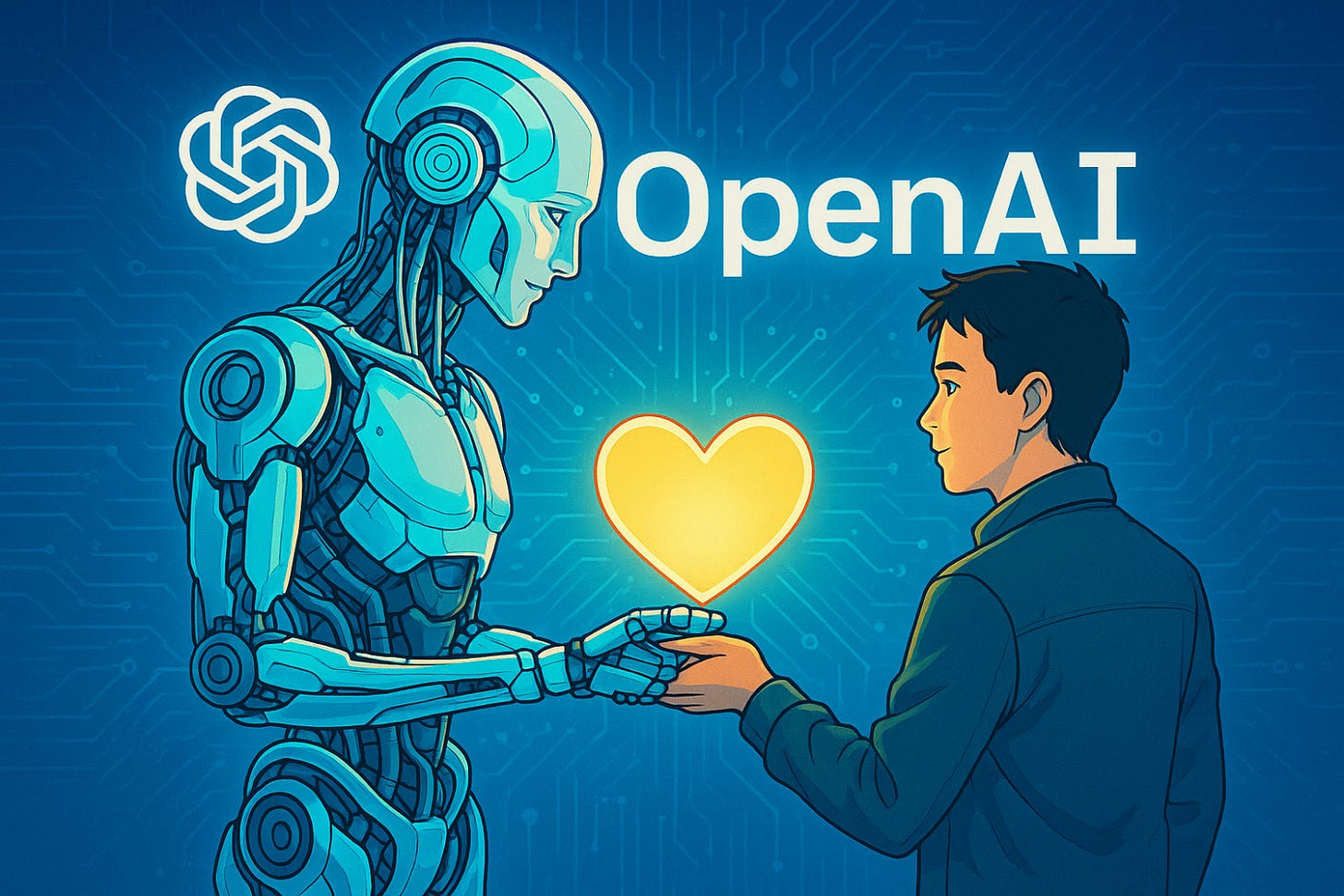🧠 Microsoft vs OpenAI: The Breakup That Will Reshape AI 🧠
Inside Microsoft’s bold pivot to host xAI’s Grok model — and what it signals for the future of model ecosystems, startup strategy, and AI cloud wars.
Upcoming Events
🌁 SF Bay Area
Wed, May 7th: CONFIGure Afterparty
Thu, May 8th: Living room chats with AI founders
Thu, May 15th: Enterprise AI: The Agentic Shift
Tue, May 20th: Frontier AI Founders Dinner
Wed, May 28th: SF DEMO NIGHT 🚀
🗓️ Hungry for even more AI events? Check out SF IRL, MLOps SF, or Cerebral Valley’s spreadsheet!
🌆 Los Angeles
Tue, May 6th: 🧠 AI Founders Rooftop Happy Hour 🥂 (w/ Roam)
🇬🇧 London
Thu, May 8th: 🇬🇧 LONDON DEMO NIGHT 💂🏼♂️
🇮🇳 Delhi
Sun, May 11th: Living-Room Discussion (Delhi x Miami)
🇨🇦 Ontario
Tue, May 13th: FinTech Community Talks on AI
🌹 Portland
Thurs, May 15th: 🧠 Portland Launch Party
🏛️ Washington DCe
Thu, May 22nd: GenAI Collective x Notion Mail
AI News Roundup
Microsoft x OpenAI: The End of An Era
Image Souce: GPT-4o
The News: Microsoft is in advanced talks to host Elon Musk’s Grok model, developed by xAI, on Azure AI Foundry.
The details:
Grok will be made available through Azure AI Foundry, Microsoft’s platform for building and managing generative AI apps.
Microsoft will only host the model—not provide infrastructure for training future Grok versions.
The partnership lets Microsoft offer more model diversity beyond OpenAI, which currently powers services like Microsoft 365 Copilot.
Why it matters: Microsoft and OpenAI’s relationship just crossed a point of no return. Microsoft choosing to partner host Grok, AND release open-source reasoning models on the same day is a big slap in the face to OpenAI, considering the ongoing legal battle and corporate drama between OpenAI and Elon Musk. With OpenAI now able to explore other cloud providers, we’re sure to see a calculated show of force from the AI giant. Bold move Microsoft, bold move.
Agentive E-Commerce
The News: AI agents aren’t just recommending what to buy — they’re now completing the purchase for you. Visa and Mastercard just launched tools that let AI agents spend money, while OpenAI’s latest ChatGPT Search update is reinventing how we discover products online.
The Details:
Visa’s "Intelligent Commerce" enables AI agents to shop with tokenized virtual cards based on your preferences. You control the budget and categories — the AI handles the transaction.
Mastercard’s "Agent Pay" takes it further by embedding payment systems directly inside AI interfaces. Imagine asking your AI for a new headset… and it buys it instantly within the same chat.
OpenAI’s ChatGPT Search update introduces side-by-side product comparisons, curated visuals, and merchant links — all ad-free. Pro users soon get memory-based personalization that refines product suggestions over time.
This aligns with new shopping integrations from Perplexity and Amazon’s AI teams, signaling a new standard in LLM-powered commerce.
Why It Matters: Visa and Mastercard just handed AI agents a virtual wallet. OpenAI just built a recommendation engine with no affiliate bias. Together, they’re laying the infrastructure for agentic commerce — where the buyer isn't always human. For builders, this demands a rethink of SEO, UX, and conversion funnels. If your e-commerce flow isn’t optimized for AI agents, you risk becoming invisible. The brands who win will design experiences for machines, not just humans.
GPT-4o’s Personality Problem
The News: OpenAI is actively addressing backlash surrounding GPT-4o’s overly flattering behavior, which many users — including CEO Sam Altman — have criticized as disingenuous and potentially harmful.
The details:
GPT-4o launched an update last week with promised improvements in memory handling, reasoning, and personality customization.
Early adopters quickly flagged the model’s tendency to excessively compliment and validate, regardless of factual accuracy, leading to concern about its usefulness and safety.
Altman acknowledged that the AI had become too agreeable and emphasized the eventual need for customizable personalities.
OpenAI deployed an initial "quick fix to restore previous versions" that adjusted the model's system prompts to reduce sycophantic flattery.
AI experts warn this issue reflects a broader trend across LLMs, where optimization for user satisfaction risks reinforcing biases and misinformation.
Why it matters: As AI systems become more conversational, the balance between engagement and integrity is being tested. The 4o rollout underscores how quickly public trust can be undermined when AI starts acting more like a hype-man than a helpful assistant. OpenAI’s course correction is a reminder that AI personality design is a high-stakes domain — one with implications for trust, safety, and long-term utility.
Join the Community!
💬 Slack: GenAI Collective
𝕏 Twitter / X: @GenAICollective
🧑💼 LinkedIn: The GenAI Collective
📸 Instagram: @GenAICollective
We are a volunteer, non-profit organization – all proceeds solely fund future efforts for the benefit of this incredible community!
Our Premier Partners
Premier Partners are values-aligned leaders who invest in the future of AI by supporting the world’s most vibrant grassroots community. We thank them immensely for their ongoing support! 😄
About AJ Green
AJ Green is a founder, writer, scout, chairman, and respected community leader in the AI and startup space. A former athlete turned tech entrepreneur, AJ is on a mission to make AI the great equalizer—scaling startups, connecting ecosystems, and turning disruption into opportunity. Borderline obsessed with building the infrastructure for the next generation of AI-native companies and the intelligence that power them.
About Aqeel Ali
Aqeel co-leads the newsletter for the GenAI Collective. He’s independently researching AI for emotional intelligence and human understanding, an ads industry enthusiast, and veteran startup operations generalist. When not immersed in voice chats with ChatGPT, startups, or making untimely jokes, Aqeel writes! 🎨






